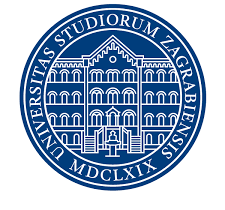About the project
Integrating refugee children in schools: a mixed-method study on the efficacy of contact-in-school interventions for building positive intergroup relations among refugee and host-society children (IRCiS)
Period: 1.9.2019. – 31.12.2023.
Project number: IZHRZ0_180568
Information about the project
The project was financed by the Swiss Enlargement Contribution as part of the CSRP Croatian-Swiss Research Program (jointly financed by the Croatian Science Foundation – HRZZ and the Swiss National Science Foundation – SNSF).
The project was supported by the Ministry of Science and Education based on the expert opinion of the Agency for Education and the Ombudsman for Children, and it was approved by the Ethics Committee of the Department of Psychology of the Faculty of Humanities and Social Sciences in Zagreb.
Summary
The IRCiS project deals with the integration of a vulnerable group of refugee children into primary schools, as well as programs to encourage tolerance and the acceptance of diversity in schools where, so far, there are no such children. The first year of the project is dedicated to examining the needs of refugee children, as well as other participants in the integration process – their parents, Croatian peers, teachers and professional associates in selected schools – in order to hear their views and needs in this process. Our final goal is to obtain as complete a picture as possible of the needs of refugee children and resident children during the integration process. The information obtained will be used as guidelines for the development of an intervention program in schools, which will be aimed at developing positive attitudes of resident children towards refugee children. Two types of programs will be prepared. One will be intended for working in schools where the arrival of refugees is still yet to happen, so that resident children can prepare, support and accept their newly arrived peers. The second will be intended for working in schools that are already attended by refugee students, in order to develop joint learning strategies that will help both resident and refugee children in developing habits of cooperation, positive attitudes towards each other, and more successful integration. Teachers and professional associates of the schools involved in the project will also participate in the development of the program, in order to ensure the feasibility of the program in schools and their applicability for certain ages of children. In the second year of the project, the developed programs will be implemented in schools, and quantitative research before and after the implementation of the program will examine their effectiveness. Interviews and focus groups with children and teachers will also be conducted after the intervention in order to check the effectiveness of the program and examine the experience of the participants in its application. It is expected that the project will result in useful guidelines and offer concrete activities that can be implemented in schools, keeping in mind the perspective of protecting the best interest of the children.
Contact
Prof. Margareta Jelić
+385 14092189
E-mail: project.ircis@gmail.com or mjelic@ffzg.hr




